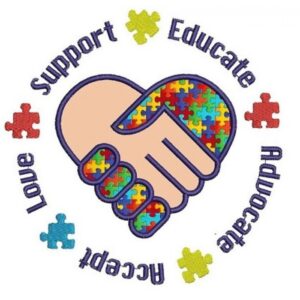[ad_1]
Diagnosing autism spectrum problem can be hard because there is no clinical take a look at (like a blood check) to diagnose the disorder. Somewhat, psychologists consider the individual’s developmental history and actions to make the prognosis. At to start with look, some men and women with autism may possibly appear to have an intellectual incapacity, sensory processing challenges, or troubles with listening to or eyesight. Thorough diagnostic evaluation by a properly trained psychologist is important for correct prognosis. Also, early intervention is vital, and if you are anxious about your child’s development, make sure you refer to methods from the CDC, these types of as https://www.cdc.gov/ncbddd/actearly/pdf/Total-Record-CDC_LTSAE-Checklists2021_Eng_FNL2_508.pdf
Frequent signs of autism could incorporate:
Deficits in Social Conversation and Conversation
Persons with autism have issues with socialization that take place across several contexts. Below are some typical signals:
- Avoids or does not keep eye contact
- Resists displays of passion these as cuddling, keeping, or touching
- Incapacity to talk their desires or would like efficiently
- Does not answer to title by 9 months
- Does not display facial expressions like joyful, unhappy, angry, and amazed by 9 months
- Does not participate in basic interactive game titles like pat-a-cake by 12 months
- Takes advantage of several or no gestures by 12 months
- For example, does not wave goodbye
- Does not share passions with other people by 15 months
- For case in point, displays you an item that they like
- Does not stage to demonstrate you anything exciting by 18 months
- Does not discover when other individuals are harm or upset by 24 months
- Prefers to perform by itself engages in minimum social play or peer interactions
- Does not detect other kids or sign up for them in play by 36 months
- Does not have interaction in faux play by 48 months
- Does not sing, dance, or act for you by 60 months


Restricted or Repetitive Behaviors or Interests
Men and women with autism have behaviors or interests that can seem to be unconventional. Some examples may include things like:
- Strains up toys or other objects and gets upset when order is modified
- Repeats terms or phrases in excess of and over (called echolalia)
- Plays with toys the same way each time
- Is centered on pieces of objects
- Receives upset by small alterations
- Has obsessive interests
- Rigid will have to observe selected routines
- Flaps palms, rocks entire body, or spins self in circles
- Sensory difficulties has unusual reactions to the strategies matters sound, odor, style, seem, or truly feel

At Jones-Wooden Psychological Associates, Inc., we can assess small children 6 several years of age and older as perfectly as
adults. Relying on the age of the person, we usually utilize the next devices:
Diagnostic Instruments:
- Autism Diagnostic Job interview-Revised (ADI-R)
- Childhood Autism Ranking Scale-Second Edition (Vehicles-2)
- Autism Diagnostic Observation Agenda-Second Edition (ADOS-2)
Other Instruments:
- Intelligence Exams
- Wechsler Intelligence Scale for Children-Fifth Version (WISC-V)
- Wechsler Adult Intelligence Scale-Fourth Version (WAIS-IV)
- Persona Checks
- Minnesota Multiphasic Personality Inventory-Adolescent-Restructured Form (MMPI-A-RF)
- Minnesota Multiphasic Temperament Inventory-3rd Version (MMPI-3)
We may perhaps overview other facts, these types of as a health care record of the mother’s pregnancy, developmental
milestones, sensory challenges, clinical health problems and evaluation of language expertise. Then, we could also evaluation spouse and children background of developmental, genetic, and metabolic problems.
Our Jones-Wood Psychological Associates, Inc. clinician who conducts these evaluations is:
[ad_2]
Supply url

